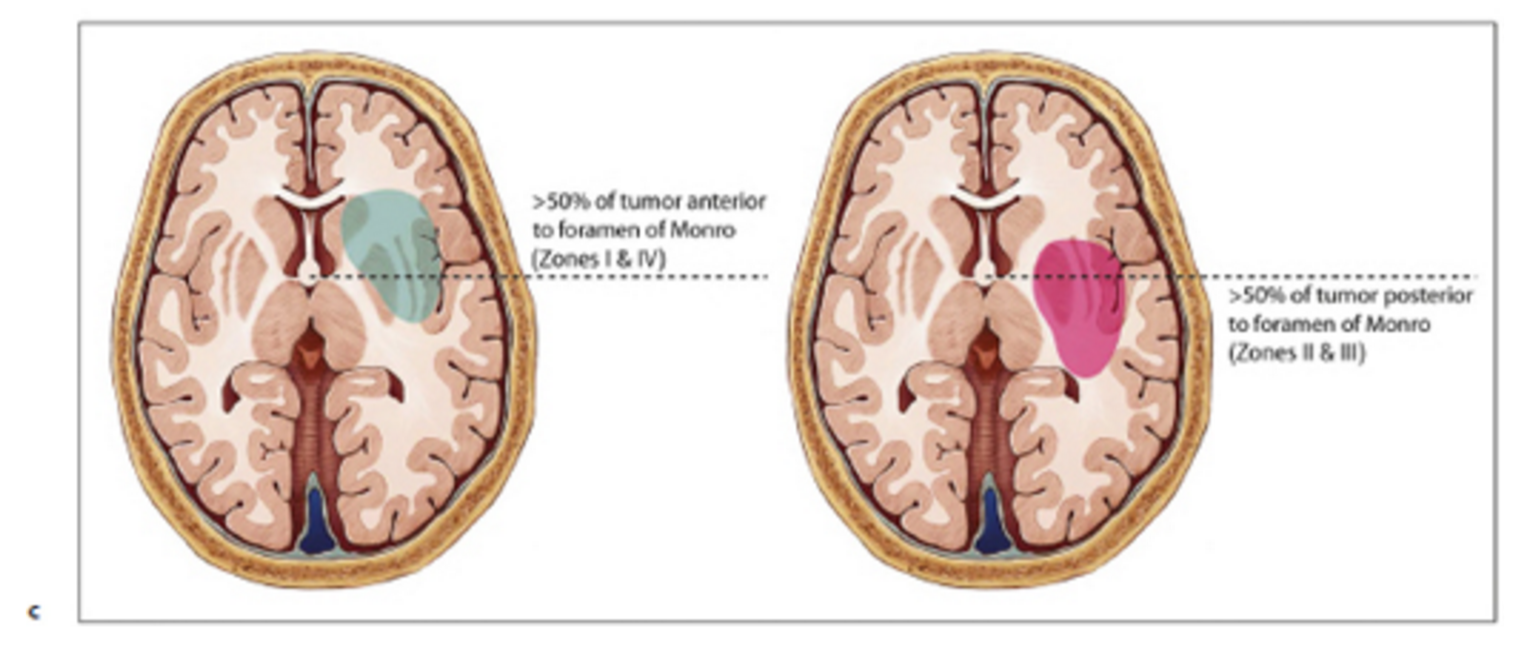Berger-Sanai classification
Divides the insula into four quadrants using:
- Horizontal axis: The Sylvian fissure
- Vertical axis: The foramen of Monro
- Zone I: Anterior-superior quadrant
- Zone II: Posterior-superior quadrant
- Zone III: Posterior-inferior quadrant
- Zone IV: Anterior-inferior quadrant
Advantages:
- Simple and reproducible using preoperative MRI
- Correlates well with surgical corridors
- Helps anticipate surgical risks (e.g., Zone II → higher risk of injury to lenticulostriate arteries)
Based on resectability and functional outcomes for insular gliomas, and it may be used to predict PFS and OS 1).
The Berger-Sanai insular glioma classification system 2).
A. Zones I to IV are divided along the line of the sylvian fissure and a perpendicular plane crossing the foramen of Monro.
B. The tumor′s location is determined according to the location of the majority of the tumor mass.
C. Axial illustrations of zones I and IV, located anterior to the foramen of Monro, and zones II and III, located behind the foramen of Monro
Orientation lines
Horizontal plane in sagittal view, bisection line along the sylvian fissure
Perpendicular plane intersected at the level of the foramen of Monro
Zones (existing of the resulting quadrants)
Zone I: anterior-superior
Zone II: posterior-superior
Zone III: posterior-inferior
Zone IV: anterior-inferior
Combinations
for tumors occupying > 1 zone, write e.g. “Zone I + II”
tumors occupying all 4 zones are defined as “giant” 3).


